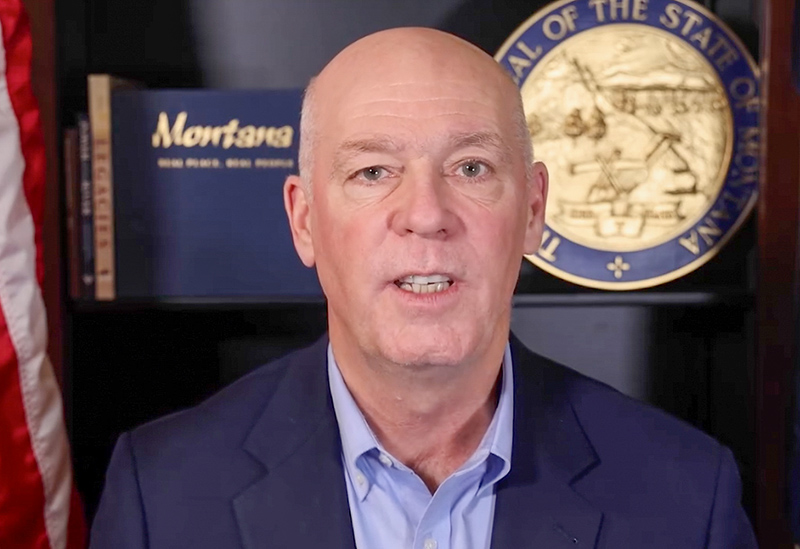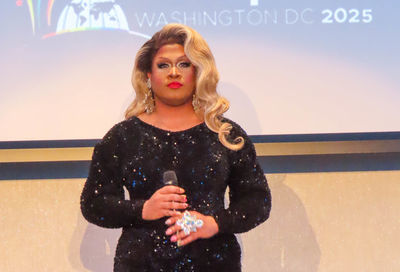Court Allows Trans Care Bans to Stand
The 6th Circuit Court of Appeals cedes authority to state lawmakers on "emerging issues" like gender-affirming care for minors.

A federal appeals court declined to block laws in Kentucky and Tennessee that prohibit doctors from prescribing gender-affirming treatments to transgender-identifying youth suffering from gender dysphoria.
On Thursday, in a 2-1 decision, the 6th U.S. Circuit Court of Appeals found that lawmakers in both states’ Republican-dominated legislatures had made “precise cost-benefit decisions” in imposing the bans, and “did not trigger any reason for judges to second-guess” those decisions, reports The Associated Press.
“Prohibiting citizens and legislatures from offering their perspectives on high-stakes medical policies, in which compassion for the child points in both directions, is not something life-tenured federal judges should do without a clear warrant in the Constitution,” Chief Judge Jeffrey Sutton wrote.
Sutton’s arguments echoed ones he had made earlier, in a similar 2-1 decision refusing to override the will of politicians on controversial issues such as transgender rights, finding that decisions on issues that are relatively new to the political arena and that are not expressly mentioned in the U.S. Constitution are better left for state lawmakers to decide — regardless of the laws’ potential unconstitutionality — than judges.
While that earlier decision allowed both Tennessee and Kentucky’s bans on gender-affirming care for transgender minors to take effect immediately, Thursday’s decision officially overturns preliminary injunctions that lower court judges had issued to block the states from penalizing doctors who recommend gender-affirming treatments.
Judge Helene White dissented, writing that both Kentucky and Tennessee’s laws “discriminate on sex and gender conformity” and “intrude on the well-established province of parents to make medical decisions for their minor children.”
Twenty-two states have passed laws banning or severely restricting various forms of gender-affirming care.
While at least nine lower court judges — including, most recently, in Montana — have found that the bans may not pass constitutional muster and have issued injunctions to block states from enforcing such laws, the conservative 6th and 11th Circuit Courts of Appeals, which cover many of those same states, have subsequently overruled those judges. Only a ban in Arkansas has been ruled to be unconstitutional on its merits by a federal judge so far.
Tennessee Attorney General Jonathan Skrmetti, who has defended his state’s ban in court, called the ruling a “big win for democracy.”
“Decisions that are not clearly resolved by the Constitution should be resolved by the people through their elected representatives,” he said.
Representatives for the plaintiffs challenging the laws lamented the decision, noting that most mainstream medical organizations agree that access to puberty blockers and hormones are the recommended treatment for someone suffering from gender dysphoria.
The plaintiffs, which include several parents of transgender children and doctors who specialize in gender-affirming or pediatric health care, have argued that bans on the practice stifle doctors’ free speech rights, infringe upon parental rights, and discriminate against transgender-identifying minors, often blocking them from accessing identical treatments prescribed to non-transgender patients, such as those suffering from hormone or endocrine disorders.
“While it is disheartening that the panel believes it is constitutional for the government to prohibit transgender youth from accessing such necessary health care, this is only a temporary setback,” Corey Shapiro, the legal director for the American Civil Liberties Union of Kentucky, which is representing the plaintiffs challenging that state’s ban. “We will continue fighting to restore that care permanently in the commonwealth.”
Under Tennessee’s law, transgender minors who had begun receiving gender-affirming treatments before the ban have been granted a “phaseout” period, where they must slowly be weaned off hormonal treatments by March 31, 2024.
Kentucky’s ban, which was passed as part of an omnibus bill targeting various LGBTQ issues, does not contain a similar provision, meaning all minors must cease their treatment until they reach adulthood.
The Kentucky law is being challenged in a separate case over some of the other provisions contained in the omnibus bill. Those provisions include restrictions on students’ use of gender-affirming pronouns and restroom usage in public schools, and prohibitions on classroom instruction, including bans on LGBTQ content, public health information on HIV or sexually-transmitted diseases, or content dealing with sex and sexuality in the broader sense.
The Southern Trans Youth Emergency Project, led by the Campaign for Southern Equality in conjunction with local LGBTQ groups, has promised to provide financial support, in the form of emergency grants, and navigation services to parents of transgender children in both states, with the aim of helping them determine where to travel out-of-state to in search of gender-affirming care, and provide them with some financial relief to help defray travel expenses.
“Families in Tennessee and Kentucky deserve better than the chaos they have endured this year, a result of politicians recklessly inserting the government into private medical decisions that should be left to families and their medical providers,” the Rev. Jasmine Beach-Ferrara, the executive director of the Campaign for Southern Equality, said in a statement.
“This ruling perpetuates the damage that Kentucky families of trans youth are already shouldering — but let me be clear: No law, and no court ruling, can stop transgender people from existing,” Oliver Hall, the trans health director at the Kentucky Health Justice Network, said in a statement.
“The truth is that this law is not stopping Tennessee families from caring for their children,” added Phil Cobucci, the founder of Inclusion Tennessee. “Instead, it is making that care painfully more expensive, time-consuming, and burdensome.”
Support Metro Weekly’s Journalism
These are challenging times for news organizations. And yet it’s crucial we stay active and provide vital resources and information to both our local readers and the world. So won’t you please take a moment and consider supporting Metro Weekly with a membership? For as little as $5 a month, you can help ensure Metro Weekly magazine and MetroWeekly.com remain free, viable resources as we provide the best, most diverse, culturally-resonant LGBTQ coverage in both the D.C. region and around the world. Memberships come with exclusive perks and discounts, your own personal digital delivery of each week’s magazine (and an archive), access to our Member's Lounge when it launches this fall, and exclusive members-only items like Metro Weekly Membership Mugs and Tote Bags! Check out all our membership levels here and please join us today!























You must be logged in to post a comment.